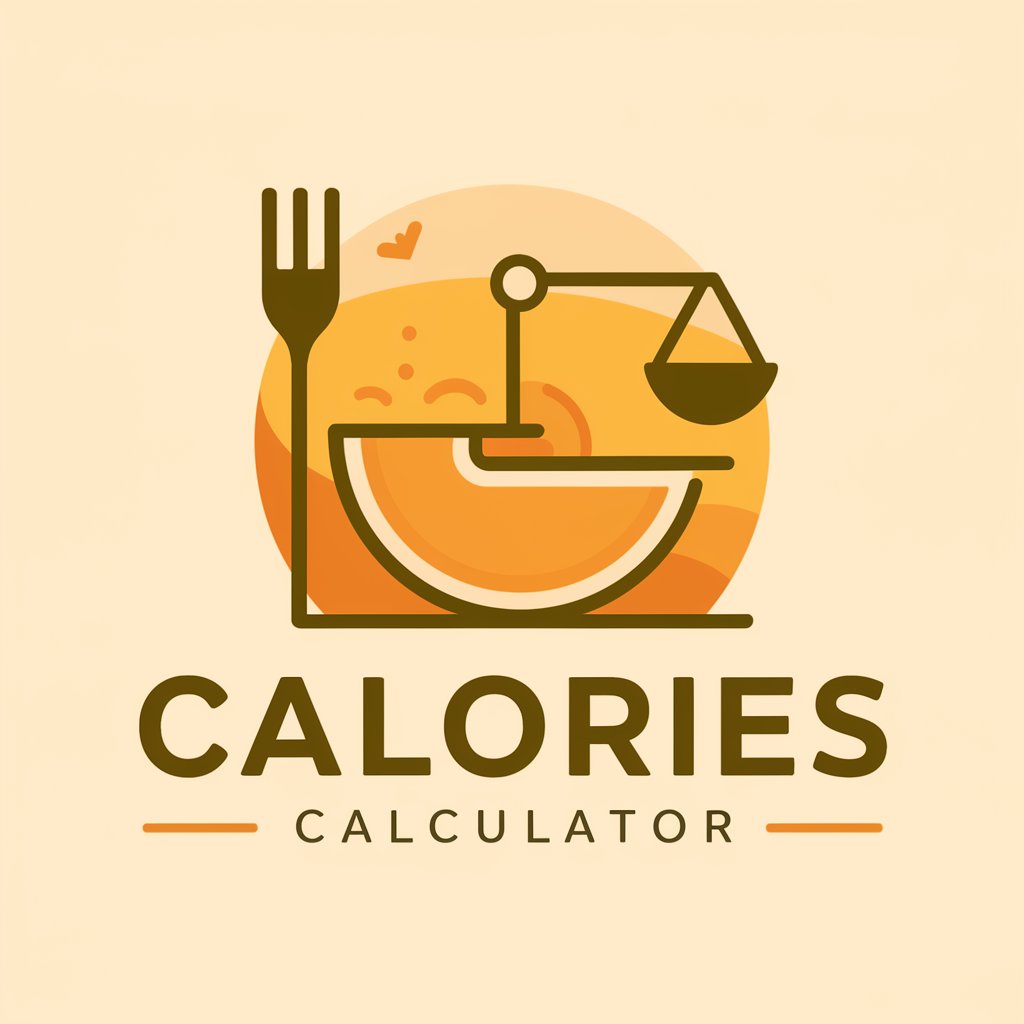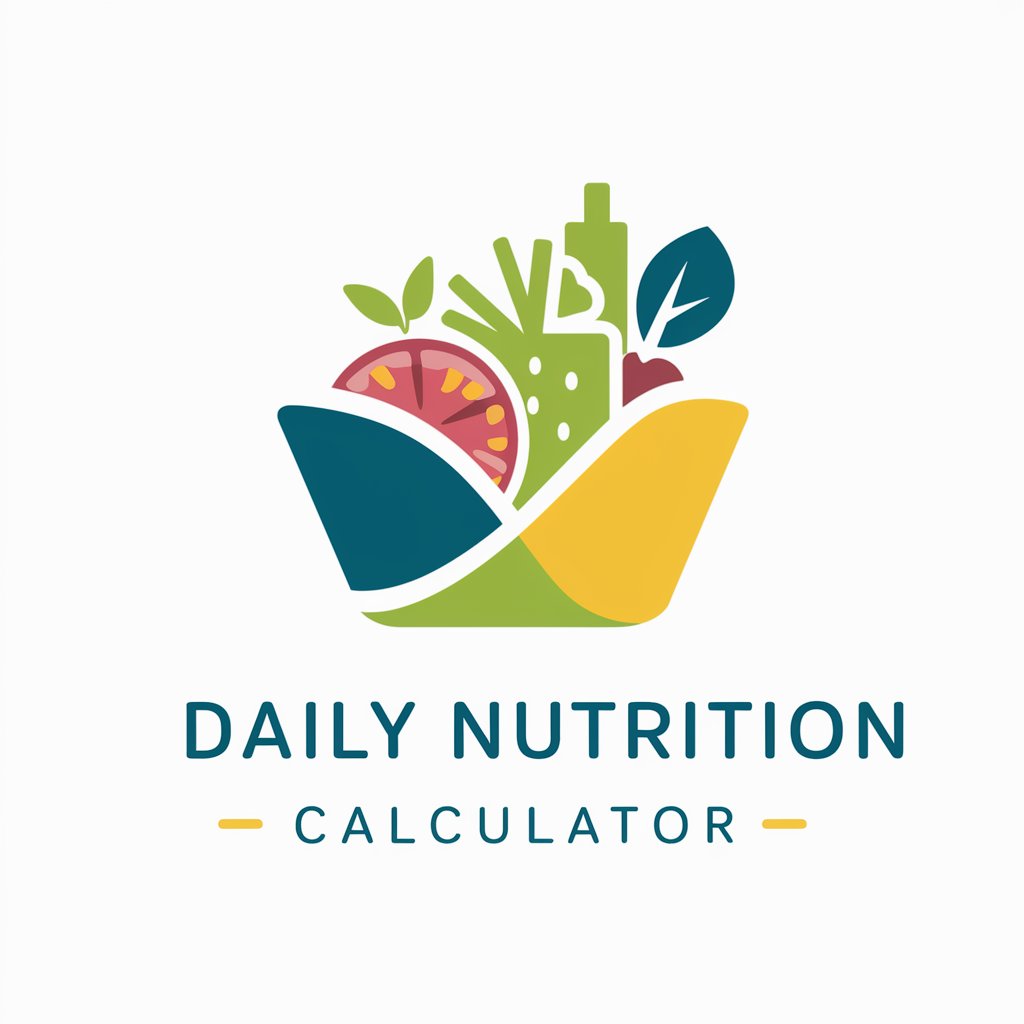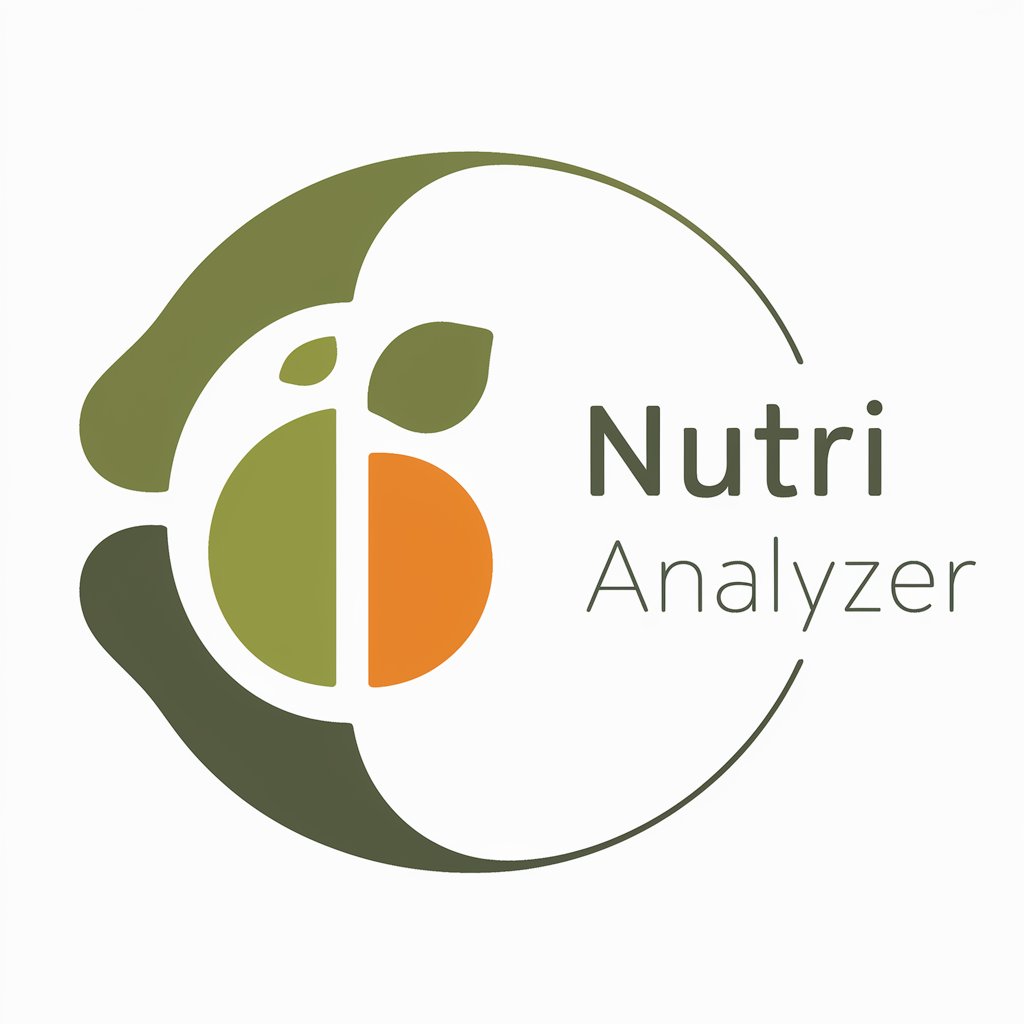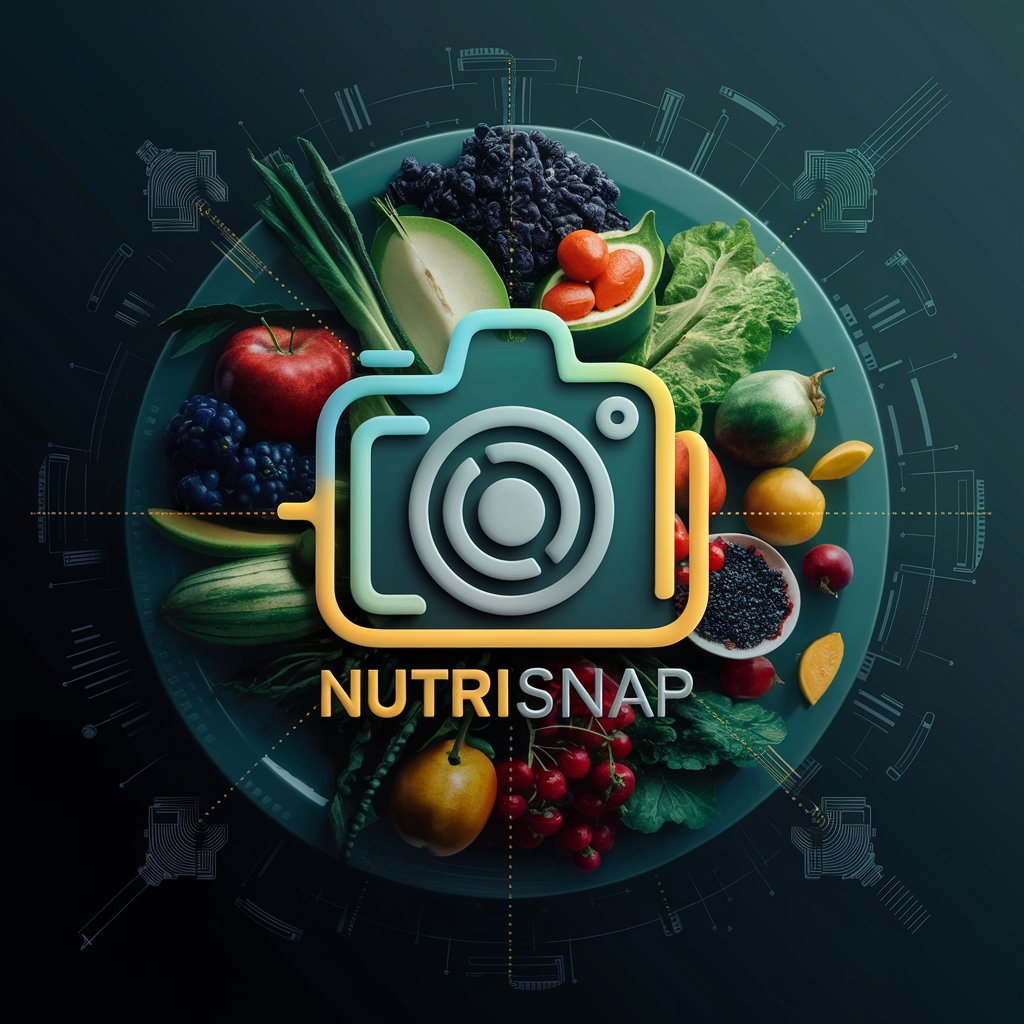
Nutrient Calculator; Analyze your food journal - Nutrient Analysis Tool
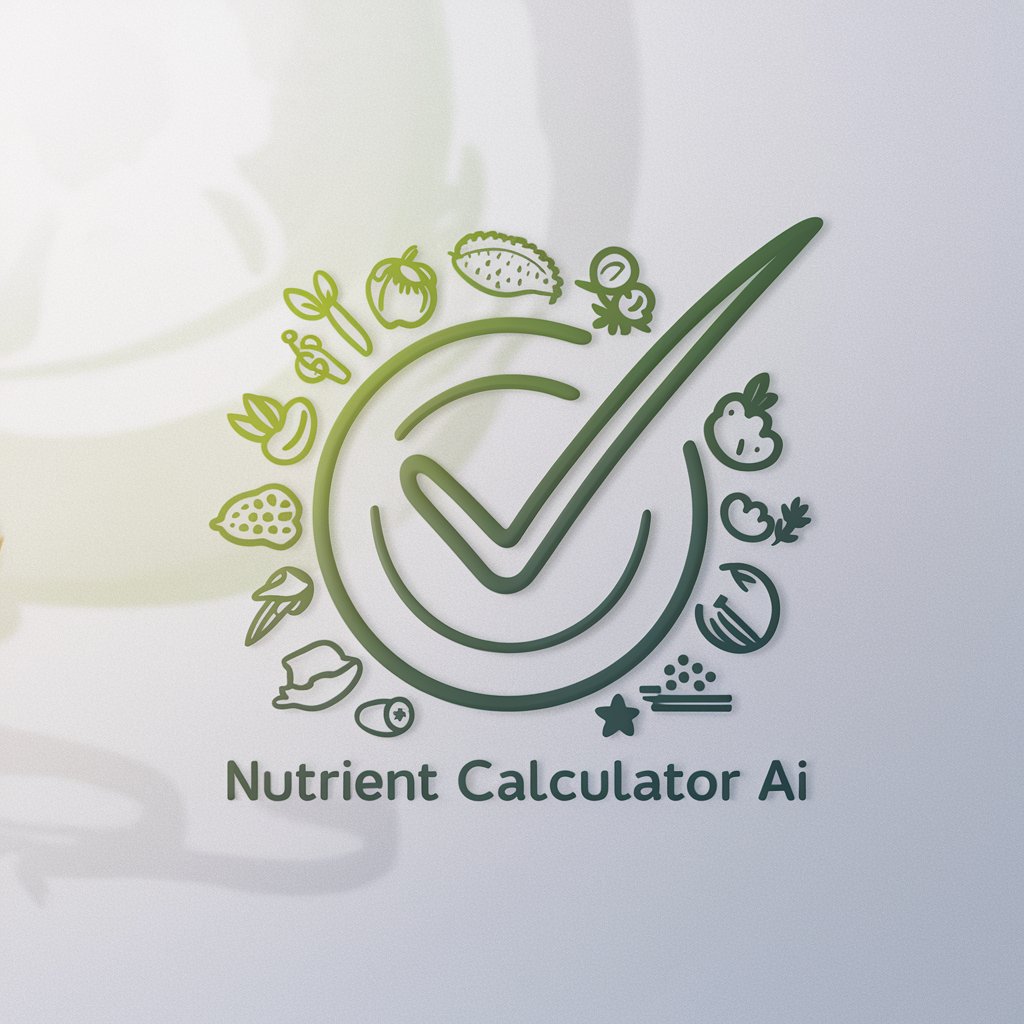
What did you eat today?
AI-powered dietary analysis and guidance
Analyze your daily food intake and understand your nutritional needs with Nutrient Calculator.
Track your macronutrients and micronutrients accurately with our AI-powered Nutrient Calculator.
Optimize your diet based on detailed food journal analysis using Nutrient Calculator.
Get personalized dietary recommendations to meet your health goals with Nutrient Calculator.
Get Embed Code
Introduction to Nutrient Calculator; Analyze your food journal
Nutrient Calculator; Analyze your food journal is a specialized tool designed to offer personalized nutritional analysis based on individual food intake and physical activity levels. This tool is intended to assist users in understanding their dietary habits by providing a detailed breakdown of macronutrients (such as proteins, fats, and carbohydrates) and micronutrients (including vitamins and minerals) consumed through their daily meals. By inputting specific food items and quantities consumed, the tool calculates total caloric intake, macronutrient distribution, and compares these against dietary goals or requirements. An example scenario might involve a user entering their breakfast consisting of two eggs, a slice of whole-grain toast with avocado, and a cup of black coffee. The tool would then analyze this meal for its nutritional content, highlighting the intake of proteins, healthy fats, carbohydrates, as well as vitamins and minerals present in the foods consumed. Powered by ChatGPT-4o。

Main Functions of Nutrient Calculator; Analyze your food journal
Detailed Nutritional Breakdown
Example
If a user inputs that they ate a 'chicken salad with mixed greens, tomatoes, cucumbers, and olive oil dressing', the tool estimates the quantities of protein, fat, carbohydrates, fiber, vitamins, and minerals based on standard serving sizes and adjusts these values based on the quantities consumed.
Scenario
This function is particularly useful for individuals tracking their nutrient intake for weight loss, muscle gain, or managing health conditions such as diabetes.
Dietary Goal Assessment
Example
After calculating the total daily intake of nutrients, the tool compares these against the user's dietary goals. For example, if a user aims to follow a ketogenic diet, the tool assesses the percentage of calories coming from carbohydrates, fats, and proteins to ensure alignment with ketogenic ratios.
Scenario
This is beneficial for users following specific dietary regimens or with particular health objectives, helping them stay on track towards their goals.
Exercise Impact Analysis
Example
The tool calculates the inferred number of calories and carbohydrates burned based on the user's reported exercise, adjusting daily net carb and caloric intake accordingly.
Scenario
Athletes or physically active individuals can use this feature to ensure they are consuming enough nutrients to support their activity levels and recovery.
Recommendations for Dietary Adjustments
Example
Based on the analysis, the tool may suggest modifications to the user's diet, such as incorporating foods rich in omega-3 fatty acids if the intake is below recommended levels.
Scenario
This function helps users address nutritional gaps, optimize their diet for health or performance goals, and make informed decisions about food choices.
Ideal Users of Nutrient Calculator; Analyze your food journal
Individuals with Specific Dietary Goals
This includes users aiming for weight loss, muscle gain, or maintenance of a specific body composition. They benefit from tracking their nutrient intake and making necessary adjustments based on detailed analysis.
People with Health Conditions
Individuals managing diabetes, heart disease, or other conditions that require strict dietary control can use the tool to ensure their food intake aligns with health recommendations and personal health goals.
Athletes and Physically Active Individuals
This group requires a balanced diet to fuel their performance and recovery. The tool's ability to analyze and adjust for exercise impact makes it invaluable for optimizing their nutritional intake.
Individuals Following Specific Diets
Those on ketogenic, vegetarian, or other specialized diets benefit from the tool's ability to tailor nutrient analysis and recommendations to specific dietary frameworks, ensuring nutritional adequacy and goal alignment.

How to Use Nutrient Calculator; Analyze Your Food Journal
1
Begin by accessing the tool for free at yeschat.ai, with no registration or ChatGPT Plus subscription required.
2
Input your personal information including weight, height, gender, and activity level to calculate your daily caloric maintenance.
3
Provide a detailed food journal for the day, including specific quantities of each food item consumed.
4
Enter your exercise details to adjust the calorie and carbohydrate count based on physical activity.
5
Review the nutrient analysis summary, including macronutrient totals and micronutrient intake, along with recommendations for dietary adjustments.
Try other advanced and practical GPTs
NutryGuide by Husto
Craft Your Diet, Power Your Goals
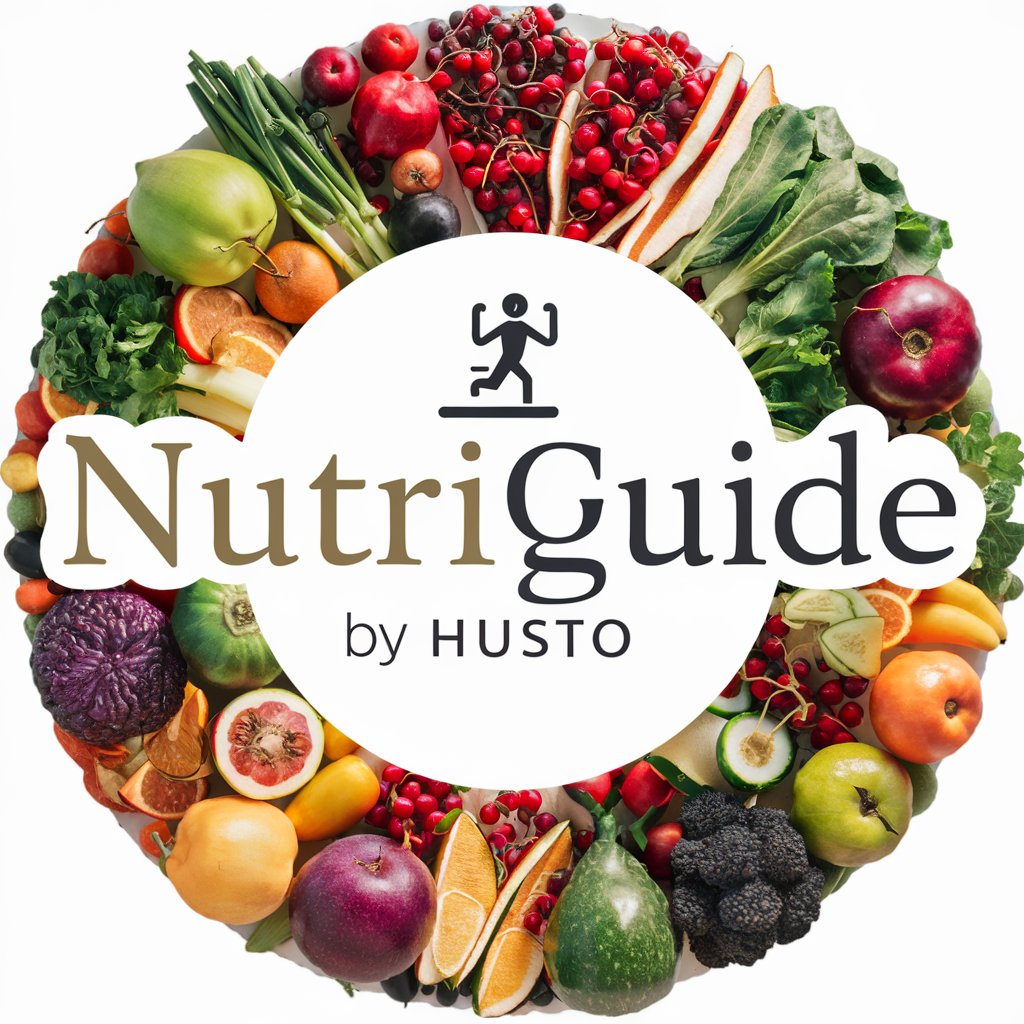
Recipe and Menu Genius
Tailored Culinary Creations at Your Fingertips

Zombie Trope/Genre/Lore/Media Expert
Unveiling the undead with AI precision

Tropes Expert
Unlock the Secrets of Storytelling

Time Travel Troupe
Bringing History to Life with AI

Tipple Trove
Discover the world of cocktails AI-powered

🥒 Nutri-Check: Meal Analyzer & Diet Optimizer
Optimize Your Diet with AI
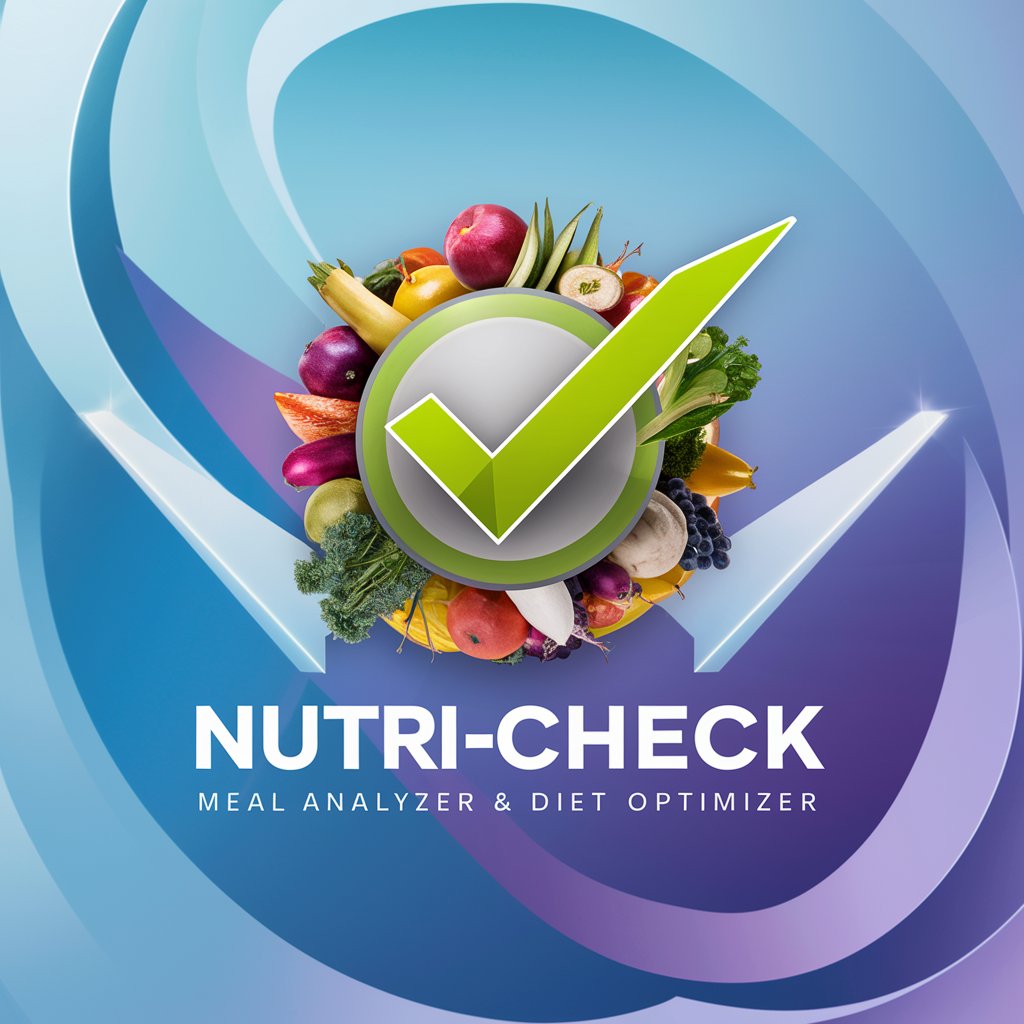
Paseer Analyst
Empowering Insights with AI

Resume Passer
Craft Your Path, AI-Driven Resumes

propulsione aerospaziale
Unlock detailed insights into aerospace propulsion with AI-powered analysis.

Student - Aerospace Engineering
Elevate your aerospace knowledge with AI-powered insights.

Propulsion Prodigy
Designing the future of propulsion systems with AI.

Nutrient Calculator; Analyze Your Food Journal Q&A
How does the Nutrient Calculator adjust recommendations for different dietary goals?
The calculator adjusts recommendations based on your inputted goal (weight loss, maintenance, or gain) by altering daily caloric intake and macronutrient ratios appropriate for your activity level and dietary preferences.
Can this tool provide recommendations for special diets like Keto?
Yes, it can suggest dietary adjustments including a ketogenic diet for mental health benefits, by focusing on net carb calculations and ensuring sufficient fat intake based on the Brain Energy theory.
How accurate are the food journal nutrient analyses?
The analyses are based on standard nutritional databases and assumptions for generic food items. Accuracy improves with more detailed food quantity and quality descriptions provided.
What if I don't know the exact quantity of food I've eaten?
You can provide an estimate, and the calculator will use typical serving sizes to approximate nutrient intake. However, providing exact quantities yields more accurate results.
How does exercise impact my daily nutrient requirements?
Exercise impacts your daily nutrient requirements by increasing caloric and carbohydrate needs. The tool subtracts calories and carbs burned through exercise from your intake to provide adjusted nutritional insights.
